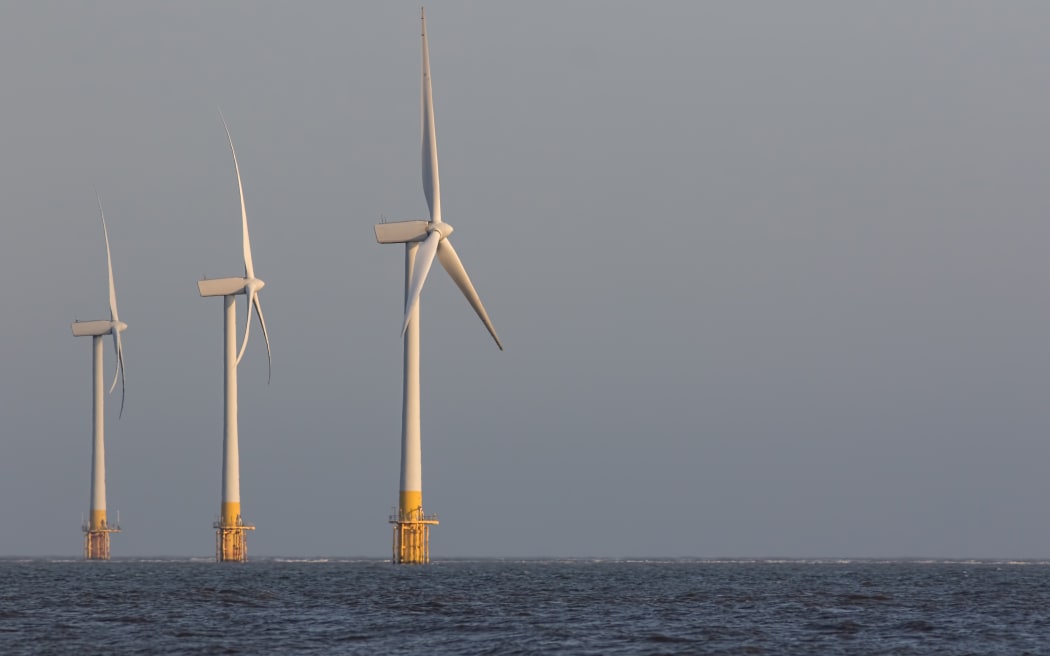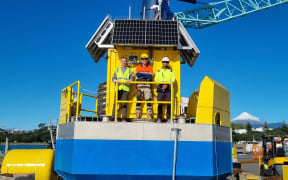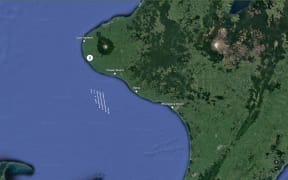
File image. Photo: 123RF / Ian Dyball
The offshore wind energy sector could contribute $50 billion to GDP between now and 2050, a new report estimates.
According to the National Impact Study: New Zealand Offshore Wind Industry, the sector would create 10,000 jobs during the build-out phase, a further 2000 ongoing positions in operations and maintenance, and additional opportunities in support industries.
The study was prepared by PWC for several energy and infrastructure sector players including Bluefloat Energy which has proposed to build a 900 megawatt, 65 fixed turbine project in the South Taranaki Bight.
It was released at Offshore Renewable Energy Forum in Taranaki on Wednesday.
The study examined the economic, social, and environmental impacts of a national offshore wind energy industry to identify both positive and negative outcomes.
Other key findings were:
- New Zealand would need to triple the volume of renewable energy generated to meet its net zero targets. Offshore wind offers one of the most credible pathways to increase generation at scale in conjunction with other technologies. An average 1 GW offshore wind farm could power around half a million homes;
- Offshore wind would be a key enabler of the energy transition, decreasing our reliance on fossil fuels and diversifying and enhancing security of supply and energy independence. Offshore wind could directly contribute to a 26 percent reduction in New Zealand's energy emissions by 2050;
- Offshore wind would be key in unlocking the hydrogen economy to decarbonise hard-to-abate sectors like heavy transport and steel production. Sustainable fuels and feedstocks produced from hydrogen could be utilised for aviation, maritime and road fuels displacing traditional hydrocarbon derived fuels.
BlueFloat Energy and Elemental Group partnerships director Justine Gilliland said the study was significant because it was the first to look at what New Zealand needed to do to meet its net zero emissions goal.
"The climate challenge means that we need new renewable energy, and we need it at a scale and pace that can help us meet growing demands for electrification and for green fuels.
"Not only do we have one of the most abundant resources to be found anywhere in the world but a skilled and knowledgeable workforce with the talent to make this happen.
"Overseas experience shows that offshore wind developments result in many positive impacts for communities, including local jobs and investment, whilst concerns are often more perceived than real."
Port Taranaki chief executive Simon Craddock said the report highlighted the essential role ports and port infrastructure would play in the development of offshore wind farms.
"As the only deep-water port on the west coast of New Zealand, and the port closest to many of the proposed developments, Port Taranaki has a key role to play in both the construction and servicing phases," Craddock said.
"For this to occur, port upgrades are necessary, and the timing of upgrades is critical to ensure offshore wind farm construction is not delayed."
According to the study, benefits of offshore wind included:
- Relatively high capacity factors (i.e. consistent generation);
- More power when New Zealand needs it most (i.e. in winter);
- New Zealand's large exclusive economic zone (15 times landmass), meant greater flexibility to choose project sites which minimise effects and are close to electricity demand;
- Greater ability to locate projects away from communities to mitigate potential visual and sound effects;
- Expected to lead to new research into New Zealand's marine species.
The study was co-funded by: BlueFloat Energy and Elemental Group, NZTE, Clarus, PowerCo, Sumitomo Corporation, Taranaki Offshore Partners, Parkwind, Business Energy Council, Transpower, NZ Wind Energy Association, Te Puna Umanga Venture Taranaki, and Port Taranaki.




